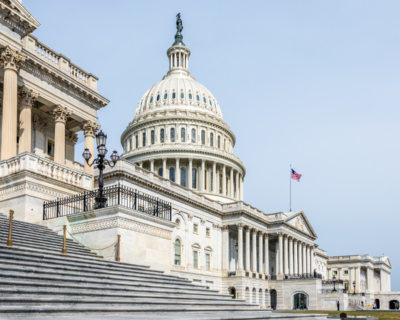Louisiana Lawmaker’s Push for Transparency in Collective Bargaining Gains National Currency
Former Bush Administration officials keen on the idea of giving taxpayers access
 NEW ORLEANS, La. – Despite losing out in a narrow committee vote, Rep. Tony Ligi’s (R-Metaire) push for transparency in collective bargaining has generated national interest. With public attention now attuned to the power of public employee unions to lobby for higher taxpayer funded benefits, Ligi anticipates he will reintroduce the Public Employee Bargaining Transparency Act (HR 204) next year.
NEW ORLEANS, La. – Despite losing out in a narrow committee vote, Rep. Tony Ligi’s (R-Metaire) push for transparency in collective bargaining has generated national interest. With public attention now attuned to the power of public employee unions to lobby for higher taxpayer funded benefits, Ligi anticipates he will reintroduce the Public Employee Bargaining Transparency Act (HR 204) next year.
His legislation would mandate the placement of collective bargaining sessions between state public employers and labor unions under the open meetings law. Any document created or presented during the sessions would be available to the public and the details attached to the collective bargaining agreements posted on the Internet.
The House and Government Affairs Committee voted 8-7 to “involuntarily defer” (terminate) the legislation earlier this month. Ligi lost two of his own Republicans, Reps. George Cromer of Slidell and Jane Smith of Bossier City, who joined with Democrats to vote for the motion from Rep. Richard Gallot (D-Ruston) to kill the bill.
“With a full committee I would have the votes,” Ligi said. “That’s just the ebb and flow of the legislative schedule, we couldn’t keep everyone together. But I fully expect this to be back in full force next year. The public certainly has right to see what’s happening in these negotiations.”
Former Bush Administration officials who worked under Labor Secretary Elaine Chao expect to see other state’s pick up on Ligi’s transparency bill. Patrick Pizzella, a former assistant secretary of labor who served from 2001-2009, said in an interview that he sees a growing understanding throughout the country that taxpayers do not have a seat at the table in the negotiations between unions and government officials.
“This is really a taxpayer protection act,” he observed. “The government entity in on the negotiations may actually be represented by people who just got elected with contributions from unions on the other side of the bargaining table. That’s why I think this transparency act is something you will start to see in other states. Taxpayers need a seat at the bargaining table and this is the only way to make sure they do.”
Beginning in 2009, more union members worked for the government than for the private sector (51.8 percent), a trend that continued through 2010, according to the U.S Department of Labor’s Bureau of Labor Statistics. This shift has occurred in tandem with an overall drop in union membership that affects mostly the private sector. After losing over 600,000 members last year, organized labor now accounts for just 11.9 percent of all employees.
The demonstrations in Wisconsin, New Jersey and Ohio aimed against reduced benefit packages for union members relate back to this fundamental shift in the complexion of organized labor, said Vincent Vernuccio, a labor policy counsel with the Competitive Enterprise Institute (CEI), who also served in the Bush Administration Labor Department.
“Sunshine is the best antiseptic,” he said. “Opening collective bargaining agreement negotiations to public scrutiny will prevent the type of back door deals that give government unions lavish unsustainable benefits at the expense of taxpayers. Legislation to bring open meeting laws to contract negations is needed to ensure taxpayer money is protected and citizen concerns are fairly represented.”
As the Common Sense Institute of New Jersey, a State Policy Network affiliate, recently reported, Gov. Chris Christie recently secured a major over public employee unions, especially the New Jersey Education Association (NJEA), which resisted his reforms. The changes include increased employee contributions to health care and retirement plans.
“It’s shocking for some citizens to know that in some cases public employees were not making any contributions for their benefits,” Pizzella said. “That’s why Gov. Christie had success in New Jersey and that’s why the issue is not going away. Rep. Ligi has seized on a very good idea.”
But the Louisiana Federation of Teachers was strongly opposed to the legislation. Meladie Munch, president of the Jefferson Federation of Teachers, has argued that Ligi’s bill would actually harm the negotiation process. Participating parties would not be able to speak in an open and unrestrained manner, Munch has said.
Kevin Mooney is an investigative reporter with the Pelican Institute for Public Policy. He can be reached at kmooney@pelicanpolicy.org and follow him on Twitter.




